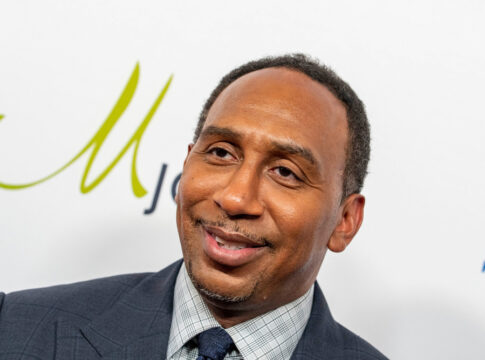President Donald Trump has openly endorsed ESPN commentator Stephen A. Smith for a potential 2028 presidential run. This unexpected political alliance highlights the continuing trend of celebrity politics in America. Can Stephen A. Smith make the leap from sports to political leadership?
Trump’s Surprise Endorsement
President Donald Trump has thrown his support behind ESPN commentator Stephen A. Smith for a potential 2028 presidential run. The unexpected endorsement came during a NewsNation interview featuring Smith, Chris Cuomo, and Bill O’Reilly, where Trump praised Smith’s entertainment skills and intelligence.
“I’ve been pretty good at picking people and picking candidates, and I will tell you I’d love to see him run,” Trump declared during the interview. The president added, “Stephen A., he’s a good guy; he’s a smart guy; I love watching him,” suggesting his admiration for Smith’s media presence extends to potential political capabilities.
Trump backs Stephen A. Smith for possible 2028 bid for president: ‘I’d love to see him run’ https://t.co/NXlLnDJE6L pic.twitter.com/J9sek2AoCJ
— New York Post (@nypost) May 1, 2025
Policy Clash During Interview
The endorsement came during a substantive exchange where Smith questioned Trump about his administration’s rollback of diversity, equity, and inclusion (DEI) policies. Smith specifically pressed Trump on funding cuts for minority-owned businesses and historically black colleges and universities, showing his willingness to challenge the president on sensitive policy matters.
Trump defended his approach, emphasizing a merit-based system without consideration of race or other demographic factors. “What we’re doing is we have a country that’s based solely on merit now, and that’s the way it is,” Trump explained, adding, “If somebody’s out there doing a great job—and this includes getting into colleges if you’ve worked really hard—and we don’t look at race.”
🚨NEW: Stephen A. Smith UNLOADS on Dems who refuse to work with Trump🚨
"I've heard politicians on Capitol Hill saying, 'I'm here just to disagree and oppose every d*mn thing Trump wants to do.'"
"Isn't he known as a dealmaker?"
"If you're not willing to talk and work across… pic.twitter.com/Rg3JF1JG32
— Jason Cohen 🇺🇸 (@JasonJournoDC) May 1, 2025
Smith’s Political Aspirations
This endorsement aligns with Smith’s previous hints about a possible presidential run in the future. The sports commentator has reportedly received encouragement from elected officials and wealthy individuals to consider entering the political arena, demonstrating his expanding influence beyond sports media.
Smith has increasingly ventured into political commentary, occasionally criticizing Democratic policies while maintaining his primary role as a sports analyst. He has suggested he might consider a run if the country were in disarray and he believed he had a viable chance of winning, indicating a pragmatic approach to a potential political career.
The prospect of Smith running for president represents the latest example of the evolving intersection between entertainment and politics in American society. Following Trump’s transition from reality television to the White House, and with other celebrities like Dwayne “The Rock” Johnson and Mark Cuban occasionally floated as potential candidates, Smith’s consideration further blurs traditional lines between entertainment figures and political leadership.
O’Reilly reportedly initiated the discussion about Smith’s political future during the interview, highlighting how media figures themselves are helping to normalize the concept of entertainers as viable political candidates. While Smith has not formally announced any intentions to run in 2028, Trump’s endorsement places him in the conversation for potential future candidates from non-traditional political backgrounds.
This development occurs as Americans continue to debate the qualifications necessary for the presidency and whether celebrity status and media savvy should be considered valuable assets for political leadership. Smith’s strong communication skills and cultural influence represent assets that traditional politicians sometimes struggle to develop, potentially giving him advantages despite his lack of governing experience.


